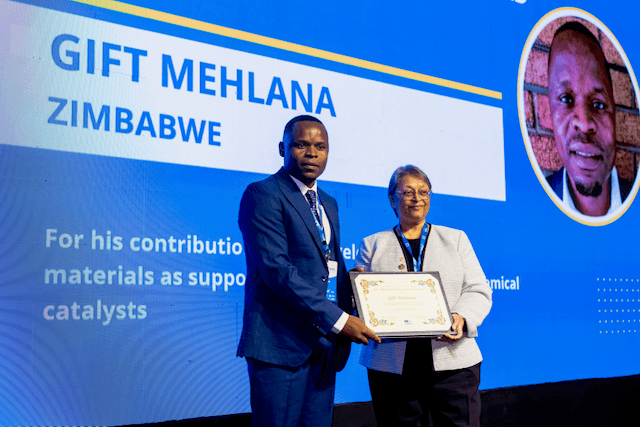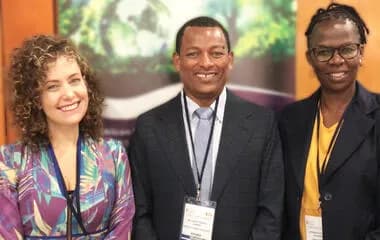News

Friday, April 16, 2021
Summary
There has been a surge in the burden of Non-communicable diseases (NCDs) in sub-Saharan Africa over the past two decades, driven by increasing incidence of cardiovascular risk factors such as unhealthy diets, reduced physical activity, hypertension, obesity, diabetes, dyslipidaemia, and air pollution. This blog explores how genetic research can be used for pre-disease detection of NCDs and provide information on identifying potential targets of therapeutic interventions.
Epidemiological transition of disease in Africa and its significance for public health
While infectious diseases continue to dominate the disease burden in many parts of Africa, an ongoing demographic transition is leading to increased prevalence of non-communicable diseases (NCDs). NCDs, such as cardiovascular diseases, cancers, diabetes, and chronic respiratory diseases, are now the leading causes of death in most regions of the world. Africa is projected to have the world’s largest increase in NCD-related deaths over the next decades. This will impose a significant burden on the continent, the population of which is expected to double within the next generation. Unfortunately, the current capacity to understand population-level genetic epidemiology of NCDs for effective management is inadequate on the continent. While genomics training appears to be gaining traction on the continent, most Africans still lack access to genetic prognoses. To reduce and prevent the burden of NCDs in Africa. there is a need to develop specialized genomics and bioinformatics skills for detecting disease-related mutations before they manifest into malignancies.
A genetic platform for training and research in NCDs
Our research focuses on an age-related condition marked by the accumulation of genetically abnormal blood cells. This condition contributes to inflammation in atherosclerotic plaques, which are associated with the development of cardiovascular diseases. Working at the National Institutes of Health (NIH) in the US, we generated data on the incidence of these genetically abnormal cells in a cohort of African- Americans living with sickle cell disease (SCD). SCD is a debilitating monogenic disease marked by life-threatening episodes and chronic complications such as anaemia and end-organ damage. It presents with significant morbidity, poor quality of life, and early mortality among individuals of African ancestry. Approximately 90% of the world's SCD population lives in three countries: Nigeria, India, and the Democratic Republic of Congo. Nigeria alone records about 150,000 newborns with SCD annually. Some individuals living with SCD have symptoms associated with accelerated aging. These individuals may also have inflammation and related problems that promote genetically abnormal blood cells. We are looking to understand how these abnormal blood cells impact pathologies in individuals living with SCD. With support from the Bill and Melinda Gates Foundation and the Alliance for Accelerating Excellence in Science in Africa (AESA), we are setting up a Laboratory for Genomic Research in Biomedicine in Nigeria to carry out research and training in SCD and other NCDs in African-descent populations.
Through APTI, I have enhanced my proficiency and capacity for sickle cell disease research, cancer biology, and genetics. I have also advanced my expertise in bioinformatics and biostatistics -- two critical skills required for the interpretation of high throughput human genetic sequence data that are increasingly being generated across Africa. I have fostered multi-disciplinary collaborations that will be useful for multi-center studies and student exchange. Overall, APTI has equipped me with the most important tools and resources needed to launch my career as an independent medical geneticist.
About Kolapo Oyebola
Kolapo Oyebola is a Nigerian geneticist and Senior Research Fellow at the Nigerian Institute of Medical Research. He is an African Postdoctoral Training Initiative (APTI) Fellow based at the United States National Institutes of Health (NIH). He is also an EDCTP Career Development Fellow. APTI is implemented through the Alliance for Accelerating Excellence in Science in Africa (AESA), a funding, agenda setting and programme management platform of the African Academy of Sciences (AAS) and the African Union Development Agency (AUDA-NEPAD), supported by the NIH and the Bill & Melinda Gates Foundation. APTI trains African researchers in global health and develops their skills in clinical and translational research.




